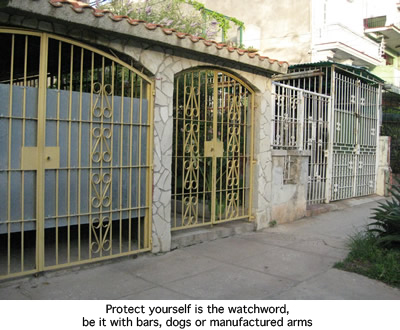

At night he watches over the rows planted with malanga and the flock of lambs, with a short homemade shotgun. It is the work of an improvised gunsmith who welded a small diameter piece of pipe to a rustic chamber, with an irregular hammer sticking out. The sound of the ingenious device is enough, in the early hours of the morning, to send running anyone who tries to steal the harvest. When the sow gives birth, he calls his brother who lives in the village, and with this contrivance, created by necessity, they keep watch until sunrise.
Many farmers use illegal weapons that have been purchased or produced in an alternative way. Without them, the fruit of months of labor could end up in the hands of the "predators" of grain, elusive shadows who move in the darkness. Poverty has increased the stealing in the Cuban countryside and forced the villagers to safeguard their own resources. Hence the proliferation of aggressive dogs and manufactured shotguns, particularly on farms where there are cows. The pound of beef that sells for two convertible pesos in the black market feeds the thefts and illegal slaughter, despite the lengthy prison sentences that these crimes entail.
For the guardians of their own property, an official announcement has come as a surprise: ..."in exceptional circumstances and only once (...) people native to and residing legally on the island, and who have in their control unlicensed firearms, will be able to obtain the required registration." There exists, however, the tacit conviction that whomever publicly admits such possession, will find the response to be confiscation. Given this fear, few will confess to keeping the cold metal anywhere in their house, preferring the risk of not having papers to the insecurity of being left without protection. To our alarm, these rustic instruments also serve those who have neither farms nor animals to protect, lying in wait on the other side of the fence, inclined to shoot to take what belongs to others.
Yoani's blog, Generation Y, can be read here in English translation.
